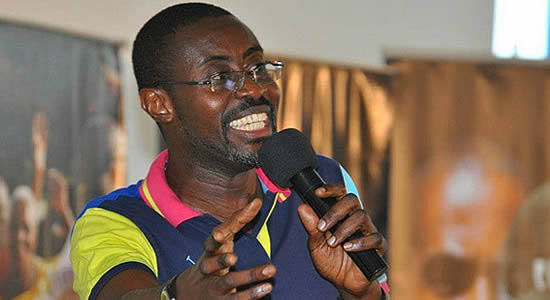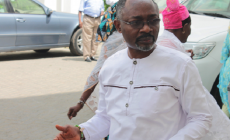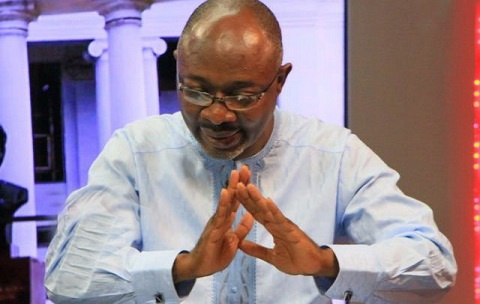Revealed: Attoney General’s office leaked Woyome documents
- Posted on
- Comment
 Interesting details are emerging in the aftermath of the Alfred Agbesi Woyome trial involving a whopping amount of GH¢51.2 million judgment debt, which culminated in the acquittal and discharge of the self-styled financier of the ruling National Democratic Congress (NDC).
Interesting details are emerging in the aftermath of the Alfred Agbesi Woyome trial involving a whopping amount of GH¢51.2 million judgment debt, which culminated in the acquittal and discharge of the self-styled financier of the ruling National Democratic Congress (NDC).
An Accra High Court presided over by Justice John Ajet-Nasam last Thursday freed the NDC bankroller of the charges of defrauding by false pretences and wilfully causing financial loss to the state in a criminal action brought against him by the state.
But two days after the ruling, it has come to light that some people at the office of the Attorney General and Minister of Justice might have leaked very delicate documents to Mr Woyome which aided him in his defence.
Revelation
Lawyer Ace Ankomah, who made the revelation during news analysis programme on Accra-based Joy FM last Saturday, wondered how Woyome managed to lay hands on a memo written by the Solicitor General to the Attorney General in which the former was advising against putting key officials involved in the scandal in the witness box because of fear of being embarrassed and subsequently tendering it as evidence against the state.
That memo became the famous Exhibit 32 in the Woyome trial.
Those key officials included former Attorney General and Minister of Justice, Betty Mould-Iddrisu, who ordered for the payment of the said amount to Woyome; her deputy at the time, Ebo Barton-Odro, currently the 1st deputy speaker of Parliament; Paul Asimenu, legal advisor at the Finance Ministry at the time of the scandal and Samuel Nerquaye Tetteh, Principal State Attorney who was said to have played vital roles in the payment.
Ace Ankomah could not comprehend how such a confidential memo exchanged among the top hierarchy of the AG’s office would end up in the hands of an accused person who in turn used it to create loopholes in the case of prosecution, leading to his acquittal and discharge.
Doubts
He found the decision and reasoning by the office of the Attorney General not to produce the former government officials and civil servants in court to give evidence as intriguing, wondering why former government officials under the Kufuor administration, including former Minister of Finance Osafo-Maafo and his deputy, Kwaku Agyemang-Manu were made to stand in the dock as prosecution witnesses without the benefit of that same principle and fear of being embarrassed as former government officials.
The lawyer also raised issues with an argument advanced by the prosecution during the trial to the effect that Betty Mould-Iddrisu ordered payment of the money to Woyome because she was not only new in her position (at the ministry) at the time, but also lacked institutional memory.
“That is not the kind of information a prosecution throws into the fray if it wants a favourable verdict,” he noted.
Defence
Deputy Attorney General Dominic Ayine, who was also on the radio programme, disagreed to some of the submissions of Ace Ankomah, even though he admitted that the leakage of the internal memo was unpardonable.
Though the prosecution confessed that Betty Mould-Iddrisu paid the money out of her lack of institutional memory, Ayine said that admission alone could not have been the basis for the judge to throw away the charge of defrauding by false pretence.
He also disagreed to the judge’s position that failure of the prosecution to produce key state actors in the case (Betty and Co.) to give evidence as witnesses caused a colossal damage to their case.
Assuming without admitting that those state officials had died, he wondered whether the state was not going to secure judgment, even though the prosecution had tendered what he described as “solid evidence” to support the charges made against Woyome.
However, the same Deputy Attorney General espoused some logic which some have said defies the basic tenets, insisting that if Betty Mould-Iddrisu and Barton-Odro who defended the payment to Woyome, had been invited as witnesses, the same Ghanaians criticising the Attorney General would have turned around to ridicule the AG and accused her of playing into the hands of Woyome to set him free.
AG’s Appeal
Meanwhile, the Attorney General and Minister of Justice, Marrieta Brew Appia-Opong, has described Justice Ajet-Nasam’s ruling which acquitted and discharged Woyome as “biased” and “wrongful in law.”
The office of the AG has therefore filed an appeal to set it aside.
In a six-point grounds of appeal served on Woyome, the AG noted that “The judge erred in law when he stated that the prosecution had woefully failed to establish a case against the accused when he had established a prima facie case against him” and that, “Having called upon the accused person to open his defence, the judge had established a prima facie case against the accused person and his failure thereon to assess the defence of the accused person as against the evidence levelled by the prosecution is wrong.”
The AG further stated that “The judge cannot be supported having regard to the evidence adduced at the trial. The judge erred by displaying a biased assessment of the evidence of the prosecution and mounting unwarranted attacks on the prosecution. The entire judgment is wrongful in law.”
State Attorneys Worry
State Attorneys at the Attorney General’s Department equally expressed aversion over what they claim to be “unwarranted and uninformed attacks” over the same ruling.
In a strongly-worded statement issued last Friday, a group which called itself ‘Association of State Attorneys’ took “serious exception” to suggestions that they are “incompetent, lazy and have colluded with the accused and the court to acquit and discharge Mr Woyome.”
This, they said, was because “in many instances, attorneys have won cases against some of these lawyers. We, however, appreciate learned friends who have discussed these issues constructively.”
In view of the fact that judges, attorneys and defence counsel are equal partners in the criminal justice system, the association said it was regrettable for one party to incite public sentiments against the other party for whatever reasons and that “for learned friends, who should know better, to engage in attacks, sometimes personal, against attorneys when cases are lost, is most unprofessional.”
Some of these attacks, according to members of the association, are fuelled by wrong appreciation of the criminal law and process.
They, however, said they remained undaunted in their efforts to do what they think is right for society.
By Charles Takyi-Boadu










 (Selorm) |
(Selorm) |  (Nana Kwesi)
(Nana Kwesi)